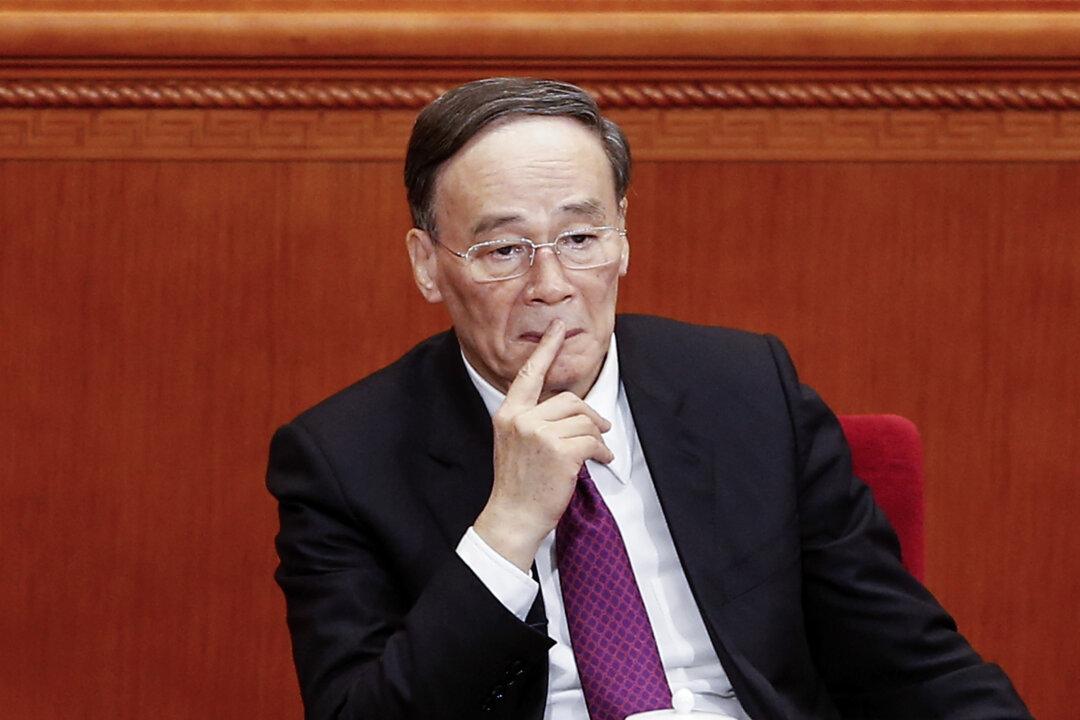News Analysis
As part of a massive anti-corruption sweep, the Chinese Communist Party’s internal disciplinary officers are probing several Party organs that happen to be deeply involved in carrying out former Party leader Jiang Zemin’s efforts to suppress a Chinese spiritual discipline.
On June 22, anti-corruption chief Wang Qishan presided over a discipline inspection meeting where the decision to investigate 32 Party and state departments, as well as four previously inspected provinces, was announced, according to the semi-official Beijing Times.
The 610 Office, an extralegal organization that oversees the persecution of Falun Gong, appeared to be insulated from anti-corruption investigations because it was the brainchild of former Party leader Jiang Zemin. It is noteworthy that a core political component of the Jiang regime is now being targeted by Party leader Xi Jinping.
The probing of the 610 Office and the Party’s intelligence and espionage organs that played a key role in the persecution also comes on the back of investigations into Jiang, his sons, and their presence in Shanghai, as well as a resolution passed by the U.S. House of Representatives that condemns the Chinese regime’s systematic organ harvesting of Falun Gong practitioners.
Jiang’s Gestapo
Falun Gong, or Falun Dafa, is a traditional Chinese discipline that involves gentle exercises and living by the teachings of truthfulness, compassion, and tolerance. About 70 million Chinese citizens across a wide segment of society were practicing Falun Gong by 1999, according to an official survey commissioned by the Party.
Feeling threatened by Falun Gong’s popularity, then-Party leader Jiang Zemin ordered the practice suppressed on July 20, 1999. Minghui.org, a clearinghouse for information about the persecution, can confirm the deaths of over 4,000 practitioners from torture and abuse. Due to the difficulty of getting information out of China, the true number is believed to be much higher. Hundreds of thousands are believed to be detained at any one time.
According to the latest report on organ harvesting by three principle investigators, David Kilgour, David Matas, and Ethan Gutmann, potentially 1.5 million people—the vast majority prisoners of conscience, primarily practitioners of Falun Gong—are believed to have been killed to supply the organs for these operations. This act has been condemned by the European Parliament and the U.S. House of Representatives.
To oversee the brutal persecution, Jiang created the 610 Office, officially called the Leading Small Group for Handling the Falun Gong Issue, on June 10, 1999. The name of the extralegal Party organ was later changed to Leading Small Group for Preventing and Handling the Problem of Heretical Organizations, and its purview expanded to include other groups. The 610 Office is closely connected to the regime’s security and legal apparatus.
The elite security cadres leading this Gestapo-like organization, however, have fallen one after the other, beginning shortly after Xi Jinping became Party leader in 2012.
Li Dongsheng, the former public security vice minister and head of the 610 Office, was arrested in 2013 and handed a 15-year jail term this January. Zhang Yue, the former security boss and 610 Office chief of Hebei Province, was investigated in April.
And Zhou Yongkang, the former security czar and Politburo Standing Committee member, was sentenced to life in prison on June 11, 2015—a day after the anniversary of the 610 Office’s founding.
Exporting a Persecution
Under Jiang Zemin’s directions, the Chinese regime’s intelligence and espionage organs, such as the United Work Front Department, the Overseas Chinese Affairs Office, and the Foreign Affairs Ministry, exported the persecution of Falun Gong beyond China’s borders.
In Hong Kong, members of the so-called “Hong Kong Youth Care Association,” a group under the United Front’s network, are known for posing as Falun Gong practitioners to hand out anti-Falun Gong propaganda. United Front groups in Hong Kong and Taiwan hurl abuse at and physically assault practitioners in public areas.
In the United States, Overseas Chinese Affairs Office agents monitor and harass Chinese Falun Gong expats, while communist front groups frequently attempt to heckle and intimidate practitioners.
Recently, leaders of these groups abroad and in China have received some comeuppance.
Li Huahong, a known proxy agent of the regime, was arrested for assault outside the Pfizer building on 42nd street in New York City during the World Falun Dafa parade on May 14.
Ling Jihua, the former head of the United Work Front Department, was arrested in China for corruption in 2015 on the anniversary of the persecution of Falun Gong. His remaining political influence in the Party continues to be removed or purged.
Nailing the Coffin
Since taking office, Xi Jinping has made several moves that suggest he opposes the suppression of Falun Gong. These moves include closing labor camps, arresting many corrupt cadres that happen to be involved in the persecution, accepting hundreds of thousands of criminal complaints filed by Falun Gong practitioners against Jiang, and reconciliatory gestures on a key persecution date.
Jiang and his sons also appear to be in soft detention, sources told this newspaper.
Given this context, the new round of investigations into the 610 Office could result in the unit’s shutdown and a new string of arrests.
Taken to its logical conclusion, the impending anti-corruption investigations could be the final nail in the coffin for Jiang Zemin’s persecution campaign, and even seal Jiang’s political fate.




